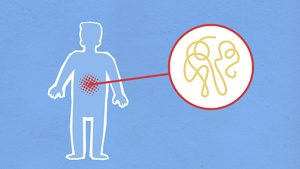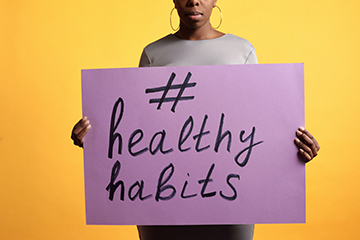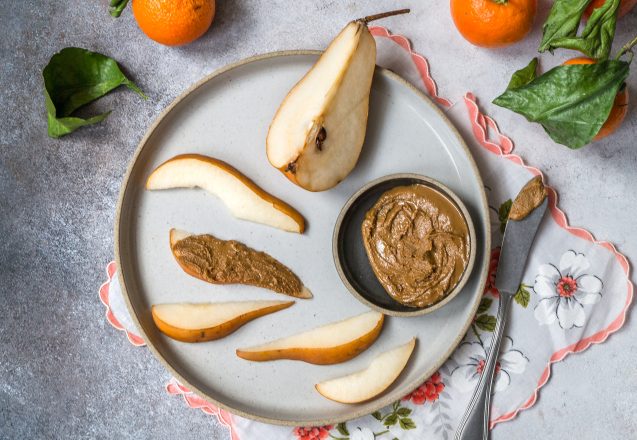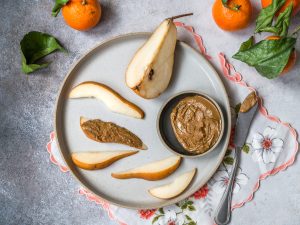Can “Cheat Days” Ruin Your Fitness Journey?
 The latest diet talks in Fort Lee, NJ, revolves around cheat days for dieters. Some people say it’s an effective way to ensure you stick with weight loss plans, while other professionals believe it may harm your chances. Who is right? First, let’s look at what cheat days are. They’re not days you eat pints of ice cream, cookies, and cake until you’re semi-conscious of all the sugar. Cheat days are days you permit yourself to indulge in a couple of pieces of pizza or a dessert after dinner.
The latest diet talks in Fort Lee, NJ, revolves around cheat days for dieters. Some people say it’s an effective way to ensure you stick with weight loss plans, while other professionals believe it may harm your chances. Who is right? First, let’s look at what cheat days are. They’re not days you eat pints of ice cream, cookies, and cake until you’re semi-conscious of all the sugar. Cheat days are days you permit yourself to indulge in a couple of pieces of pizza or a dessert after dinner.
Cheat days are part of a healthy eating strategy.
If you’re eating healthy food, you’re not dieting, but you probably are losing weight. When you choose healthy eating as your road to weight loss, sometimes you eat a piece of cake or sample a cookie. It’s not the end of your focus on eating healthier, but part of it. Healthy eating means focusing more on whole foods and reducing the amount of highly processed food and food with added sugar. It’s all about moderation.
Theoretically, cheat days should boost your metabolism.
Your body is hardwired to survive. When food is scarce, the body slows metabolism to ensure there are enough calories for vital functions. That makes it harder to lose weight. Planned cheat days increase caloric intake periodically to keep the metabolic fires burning high. Short-term results indicate that a cheat day can boost metabolic functioning by up to 10% for up to 24 hours.
You might slow your progress with planned cheat days.
If you’re increasing your calories by an extra 500 for one day a week, it will slow weight loss progress. It’s mathematical. It takes a deficit of 3500 calories to lose one pound. If you cut your caloric intake by 500 calories a day, you’ll lose a pound in one week. If you have a cheat day that week, it will take you 8 days, not seven, to lose a pound. However, you’ll be less likely to feel deprived and more likely to stick with your healthy eating plan the rest of the time. If food with added sugar is your weakness, cheat days may make it harder. It feeds the sugar addiction, keeping it alive.
- Cheat days don’t mean you eat everything in sight. It means you permit yourself to consume an otherwise forbidden high-calorie food. Focus on portion control, too.
- If you’ve given up food with added sugar, don’t include those types of food for a while. Wait a month before you do and you’ll probably find the food tastes way too sweet. It’s because you’ve retrained your sense of taste.
- People who never seem to have a problem with their weight and can eat everything tend to eat more like people who diet and include cheat days. They eat healthy most of the time, but when they want a specific food, they eat it. It never becomes an issue.
- Plan cheat meals around special occasions so you can join in the fun. On the cheat day, eat slowly and savor the food, allowing your stomach to tell the brain it’s full, so you’ll eat less.
For more information, contact us today at VIP Fitness Center



 There are psychological and physiological reasons that fitness improves your feeling of well-being. When you stay active, it keeps your body and your mind younger. It helps fight inflammation while boosting circulation. That makes you feel better physically and emotionally. A direct correlation exists between a lack of exercise and depression or anxiety. Many therapists use it as an adjunct therapy since it works better than some medications and has no side effects.
There are psychological and physiological reasons that fitness improves your feeling of well-being. When you stay active, it keeps your body and your mind younger. It helps fight inflammation while boosting circulation. That makes you feel better physically and emotionally. A direct correlation exists between a lack of exercise and depression or anxiety. Many therapists use it as an adjunct therapy since it works better than some medications and has no side effects.
 Whether it’s rheumatoid arthritis, heart disease, or sore muscles, inflammation contributes to the problem. One way to reduce inflammation and promote recovery is to change your diet. The food you eat can increase or reduce inflammation and prevent pain. People in Fort Lee, NJ, have learned how adopting a new diet makes a difference in their health. It’s a matter of eating less inflammation-causing food and more food that helps reduce the problem.
Whether it’s rheumatoid arthritis, heart disease, or sore muscles, inflammation contributes to the problem. One way to reduce inflammation and promote recovery is to change your diet. The food you eat can increase or reduce inflammation and prevent pain. People in Fort Lee, NJ, have learned how adopting a new diet makes a difference in their health. It’s a matter of eating less inflammation-causing food and more food that helps reduce the problem.
 Good health isn’t about eating one nutritious meal or doing one push-up. It’s about consistently doing things that make you healthy by creating healthy habits. Everyone has at least one area of their life they could change to become healthier. Change can be overwhelming, but making one change at a time makes it easier. If you are a member of VIP Fitness in Fort Lee, NJ, you will have a head start.
Good health isn’t about eating one nutritious meal or doing one push-up. It’s about consistently doing things that make you healthy by creating healthy habits. Everyone has at least one area of their life they could change to become healthier. Change can be overwhelming, but making one change at a time makes it easier. If you are a member of VIP Fitness in Fort Lee, NJ, you will have a head start.
 Food cravings are more than just hunger. They have different origins, although being hungry increases cravings. Cravings begin in the reward system. The brain’s reward area is in various regions of the brain’s center. The hunger area is in the hypothalamus at the base of the brain, near the pituitary gland. It controls other rudimentary needs like hunger, thirst, blood pressure, and sleep. The center of the brain’s reward system functions to keep us alive and continue the species. It controls eating, sleeping, sex, and even response to the fight-or-flight response. It rewards the body with a feel-good neurotransmitter called dopamine.
Food cravings are more than just hunger. They have different origins, although being hungry increases cravings. Cravings begin in the reward system. The brain’s reward area is in various regions of the brain’s center. The hunger area is in the hypothalamus at the base of the brain, near the pituitary gland. It controls other rudimentary needs like hunger, thirst, blood pressure, and sleep. The center of the brain’s reward system functions to keep us alive and continue the species. It controls eating, sleeping, sex, and even response to the fight-or-flight response. It rewards the body with a feel-good neurotransmitter called dopamine.
 Both trans-fat and saturated fat occur naturally. Only small amounts of natural trans fats exist in the meat and dairy products of cows and other ruminant animals. The trans fats that are the troublemakers are man-made and come from hydrogenating oils. Saturated fat is natural. It’s solid at room temperature. The biggest difference between saturated fat and trans fats is that your body needs saturated fat, but man-made trans fats can harm it.
Both trans-fat and saturated fat occur naturally. Only small amounts of natural trans fats exist in the meat and dairy products of cows and other ruminant animals. The trans fats that are the troublemakers are man-made and come from hydrogenating oils. Saturated fat is natural. It’s solid at room temperature. The biggest difference between saturated fat and trans fats is that your body needs saturated fat, but man-made trans fats can harm it.
 Many people in Fort Lee, NJ, make healthy snacks ahead, so they’re ready when hunger hits. It can happen when you’re driving, at work, or home. Having them ready allows you to snack while sticking with a good nutrition program. Some people may think snacking is bad, but that’s not true. It’s an important part of any weight loss program. It helps you feel satisfied throughout the day so you aren’t tempted to eat junk food and won’t overeat at the next meal.
Many people in Fort Lee, NJ, make healthy snacks ahead, so they’re ready when hunger hits. It can happen when you’re driving, at work, or home. Having them ready allows you to snack while sticking with a good nutrition program. Some people may think snacking is bad, but that’s not true. It’s an important part of any weight loss program. It helps you feel satisfied throughout the day so you aren’t tempted to eat junk food and won’t overeat at the next meal.
 Low carbohydrate diets play an important role in weight loss. While healthy low-carbohydrate diets are effective and nutritious when based on scientific principles, cutting out all carbs doesn’t follow the rules of good nutrition and can be dangerous. Not all carbs make you fat. Some carbs can help you lose weight while providing important nutrients.
Low carbohydrate diets play an important role in weight loss. While healthy low-carbohydrate diets are effective and nutritious when based on scientific principles, cutting out all carbs doesn’t follow the rules of good nutrition and can be dangerous. Not all carbs make you fat. Some carbs can help you lose weight while providing important nutrients.
 Eating healthy is important. Healthy eating is about avoiding food that harms the body and consuming more food that offers benefits. Is apple cider vinegar—ACV—one of those? Many people in Fort Lee, NJ, believe it is. You can use it as a skin toner, hair rinse, acne treatment, and natural deodorant, but the real power is the flavor it adds to food and the health benefits it provides. ACV can even boost weight loss.
Eating healthy is important. Healthy eating is about avoiding food that harms the body and consuming more food that offers benefits. Is apple cider vinegar—ACV—one of those? Many people in Fort Lee, NJ, believe it is. You can use it as a skin toner, hair rinse, acne treatment, and natural deodorant, but the real power is the flavor it adds to food and the health benefits it provides. ACV can even boost weight loss.
 Vitamin D is vital for good health. It boosts the immune system and performs other vital functions. Safe sunning can help increase your vitamin D naturally. The ultraviolet rays of the sun convert cholesterol into vitamin D. Safe sunning is minimal exposure to the sun. Too much exposure to solar rays can lead to skin cancer. Some people can get all the vitamin D they need from daily safe sunning, but if you live in Fort Lee, New Jersey, that’s not possible all year. You have to increase your Vitamin D through the food you eat or by taking a supplement.
Vitamin D is vital for good health. It boosts the immune system and performs other vital functions. Safe sunning can help increase your vitamin D naturally. The ultraviolet rays of the sun convert cholesterol into vitamin D. Safe sunning is minimal exposure to the sun. Too much exposure to solar rays can lead to skin cancer. Some people can get all the vitamin D they need from daily safe sunning, but if you live in Fort Lee, New Jersey, that’s not possible all year. You have to increase your Vitamin D through the food you eat or by taking a supplement.